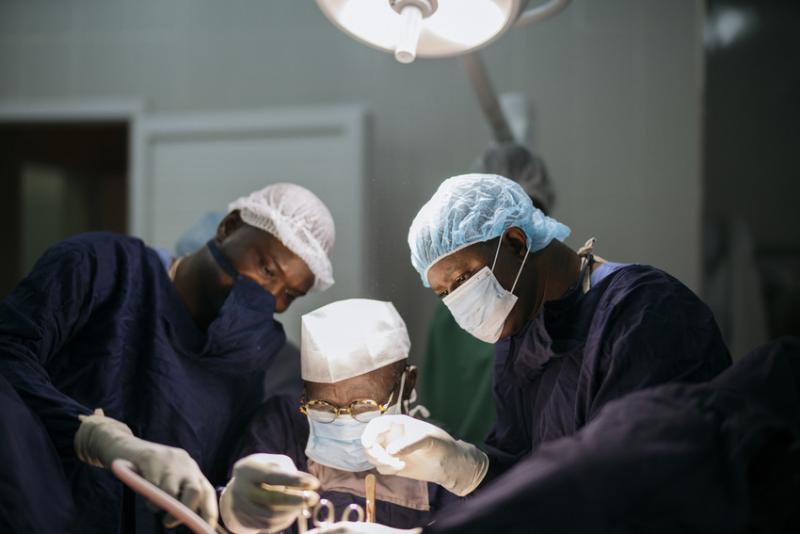Where We Work
See our interactive map


Malian fistula surgeons at work in Kayes, Mali. By training local surgeons throughout the country to perform fistula repair surgeries, Mali has expanded fistula care and enabled more hospitals to offer routine surgeries for the first time. Photo by Nana Kofi Acquah for IntraHealth International.
A new report by IntraHealth International describes the systems, practices, and partnerships that have led to Mali’s remarkable success in addressing obstetric fistula among women and girls, even in the hardest-to-reach parts of the country.
10 Years of Obstetric Fistula Care in Mali: A Case Study of Multisectoral, Holistic Treatment for Women and Girls comes on the heels of the Malian government’s announcement in March of major reforms in the country’s health sector. By 2022, President Ibrahim Boubacar Keïta said, health services will be free for all pregnant women and children under 5, contraceptives will be free, and the country will add thousands of health workers to its community health system. These changes could address Mali’s many problematic health indicators, including around malnutrition, family planning, maternal and neonatal health, and more.
High-quality health services and trained health workers have been crucial to Mali’s progress over the past decade in addressing obstetric fistula, a devastating, disabling childbirth injury that can result from prolonged labor. Obstetric fistula affects more than 2 million women in Asia and sub-Saharan Africa. Every year in Mali, up to 2,400 women and girls are at risk of developing it.
10 Years of Obstetric Fistula Care in Mali offers insights on sustainability in fistula care, mobilizing communities, and key suggestions for neighboring West African countries that face similar challenges.
The Fistula Mali project provided obstetric fistula repair surgeries for 1,214 women.
It also highlights five key interventions that have driven Mali’s progress in fistula care, including:
The Fistula Mali project, which was funded by the US Agency for International Development, drove and contributed to many of the successes highlighted in the report. During 2014–2018, the project and its partners accomplished these results and more:
Read the report now: 10 Years of Obstetric Fistula Care in Mali: A Case Study of Multisectoral, Holistic Treatment for Women and Girls
The Fistula Mali project was funded by the US Agency for International Development. Learn more about IntraHealth’s work in Mali to improve health and well-being for families.



